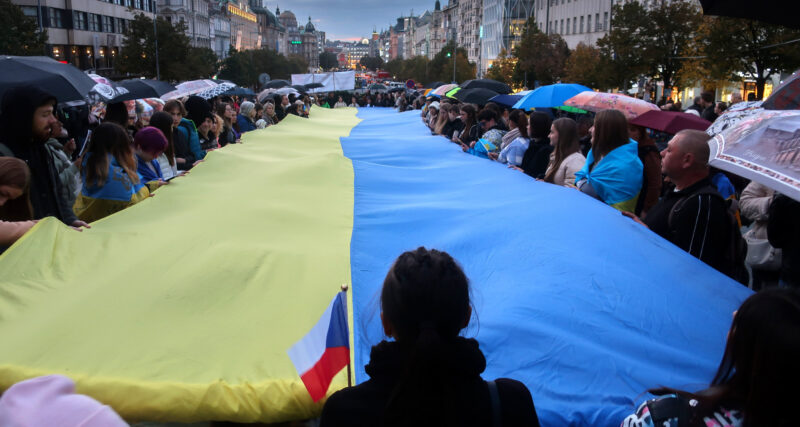A total of 155,000 refugees from Ukraine are employed in the Czech Republic. Of these, 95% are paying taxes on income earned from work or contracts. This was reported to journalists by Kateřina Štěpánková, Director of the Employment Department of the Ministry of Labor.
According to the Ministry of the Interior, 368,000 refugees from Ukraine had temporary protection in the Czech Republic. The number of refugees in the labor market has stabilized at 155,000. The most important development is that 95% of them have insured their employment relationships for an indefinite period (they are paying contributions). Initially, this figure was about 40%, Štěpánková said.
Earlier, the ministry announced that starting from the third quarter of 2023, income from insurance contributions and part of the taxes paid by refugees will exceed the costs of their maintenance.
“In total, 28% of the 368,000 refugees are children and people over 65. The number of working-age adults is 265,400, three-fifths of whom are women,” Štěpánková added.
She also mentioned that when initially recruiting personnel, various customs and expectations played a role. The ministry continued efforts to raise awareness about free access to the labor market without intermediaries and payments, as well as about working conditions in the country. “Refugees are no longer in such a precarious situation. They are gradually moving out of the gray zone and into standard conditions,” Štěpánková told ČTK. She added that refugees are still mostly working in low-skilled jobs. “At first, when you need to earn money, you take any job. Gradually, you move up in terms of qualification and knowledge of the Czech language,” said the director.
According to the latest wave of the long-term study Voice of Ukrainians by the Center for Public Opinion Research (CVVM), the skills and experience of refugees are underutilized by the Czech Republic. Only 3% of respondents in the Czech Republic performed unskilled and routine jobs in their home country, compared to 15% in the Czech Republic. 6% worked as machine and equipment operators in their home country, compared to 31% in the Czech Republic. Specialized activities were carried out by 45% of respondents in Ukraine, and 16% in the Czech Republic. Two-thirds of respondents in November last year were employed full-time or worked at least 30 hours a week. One-third of respondents stated that their earnings were insufficient.
In the past six months, the employment center registered 286,300 workers from Ukraine, of whom 147,100 were women. 218,300 people were working without permits or workbooks. Among them, in addition to refugees, there are people with permanent residence or those with Czech secondary or higher education, or those currently studying here. By the end of the first quarter, 111,700 people from Ukraine had permanent residence permits.




